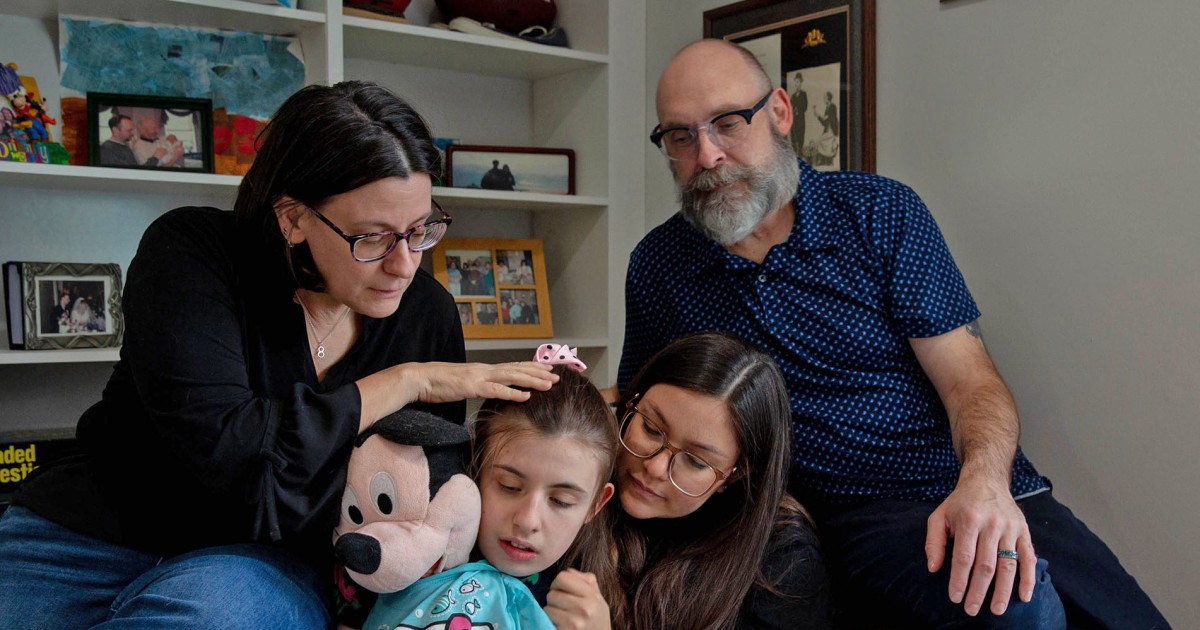Trump's Immigration Crackdown: Exacerbating a Healthcare Crisis for Families
Introduction: The Trump administration's hardline immigration policies, while aiming to strengthen border security, have inadvertently created a significant healthcare crisis for many immigrant families. Fear of deportation, coupled with restrictive policies, has severely limited access to essential medical services, leading to devastating consequences for individuals and communities. This article will explore the multifaceted ways these policies have negatively impacted healthcare access for immigrant families.
The Chilling Effect of Fear:
Perhaps the most significant consequence of the crackdown is the widespread fear among undocumented immigrants. This fear prevents them from seeking necessary medical care, even in emergency situations. The threat of deportation, coupled with increased ICE (Immigration and Customs Enforcement) activity, has driven many families into the shadows, avoiding hospitals, clinics, and even routine checkups for fear of encountering law enforcement. This "chilling effect" has profound health implications.
- Delayed or Forgone Care: Many conditions, from chronic illnesses like diabetes and hypertension to acute injuries, require timely medical attention. Delaying or forgoing care can lead to significantly worse health outcomes, increased hospitalization rates, and even death.
- Untreated Mental Health Issues: The stress and anxiety associated with living in constant fear contribute significantly to mental health problems. Access to mental healthcare is already limited for many, and the current climate exacerbates this disparity, leading to untreated depression, anxiety, and PTSD.
- Impact on Children: Children are particularly vulnerable. Parental fear of deportation can lead to neglect of children's healthcare needs, resulting in missed vaccinations, untreated illnesses, and developmental delays.
Policy-Driven Barriers to Healthcare:
Beyond the chilling effect, specific policies have directly hindered access to healthcare:
- Public Charge Rule: The expanded "public charge" rule, which penalizes immigrants who use certain public benefits, has dramatically reduced enrollment in vital healthcare programs like Medicaid and CHIP (Children's Health Insurance Program). Families fear that seeking assistance will jeopardize their immigration status, leading them to forgo essential care.
- Limited Access to Affordable Care Act (ACA) Coverage: While the ACA has expanded healthcare access for many, undocumented immigrants are generally ineligible for subsidized coverage. This leaves them with limited options, often relying on expensive emergency room visits which are both costly and inefficient for managing chronic conditions.
- Restrictions on Healthcare Providers: Some healthcare providers, fearing potential legal ramifications, have become hesitant to treat undocumented immigrants, further limiting access to care.
The Human Cost:
The consequences of this healthcare crisis are devastating. Families face preventable illnesses, chronic conditions left untreated, and compromised well-being. The overall health of communities is negatively impacted, with increased rates of infectious diseases and preventable deaths. The long-term economic and social implications are significant, placing an undue burden on already strained healthcare systems.
Moving Forward:
Addressing this crisis requires a multifaceted approach:
- Policy Reforms: Reforming the public charge rule and expanding access to affordable healthcare for all, regardless of immigration status, are crucial steps.
- Community Outreach: Increasing community outreach and education about healthcare access resources can help alleviate fears and encourage individuals to seek care.
- Protection for Healthcare Providers: Policies that protect healthcare providers from legal repercussions for treating undocumented immigrants are essential.
The Trump administration's immigration policies have undeniably exacerbated an already existing healthcare crisis for immigrant families. Addressing this issue demands a compassionate and comprehensive approach, prioritizing the health and well-being of all individuals, regardless of their immigration status. The human cost of inaction is simply too high.
(Note: This article is for informational purposes only and does not constitute legal or medical advice. For specific information and guidance, please consult with relevant professionals.)
Keywords: Trump immigration policy, healthcare crisis, undocumented immigrants, public charge rule, access to healthcare, immigrant families, ICE, deportation, Medicaid, CHIP, ACA, affordable care act, healthcare access, immigration reform.

